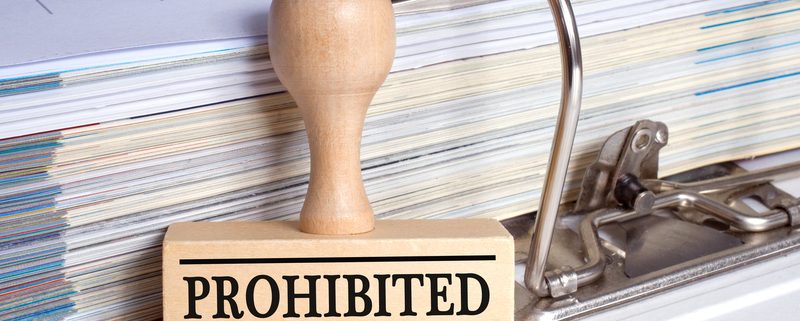A List of Self-Directed IRA Prohibited Transaction Triggers
In a Self-Directed IRA, when you take more control over your retirement future, you are also taking on more responsibility. One of those responsibilities is understanding what not to do. To that end, it’s always a good idea to review the Self-Directed IRA prohibited transactions. This is a list of actions that you will want to avoid when you take control over your retirement. The good news is that these prohibited transactions are not special—they apply to any retirement account. But because a Self-Directed IRA gives you more freedom and access to a variety of investments, you have to be more keenly aware of where the boundaries lie.
Why Prohibited Transactions?
The U.S. Congress created the laws behind retirement accounts so investors could enjoy tax protections while saving for retirement. But that is the point: saving for retirement. If an investor uses tax protection for retirement while trying to enjoy a personal benefit before retirement, then the government does not look kindly upon that sort of transaction.
For that reason, there are certain limits placed on retirement accounts. And as you learn what is possible with a Self-Directed IRA, it is also important that you learn which transactions are necessarily impossible for any retirement account.
A List of Self-Directed IRA Prohibited Transactions
Let us start with the assets you will not be able to invest in with retirement accounts, in any shape or form.
- Life insurance. Life insurance can create personal benefits before retirement age, which makes it not a viable investment for retirement accounts.
- Certain kinds of precious metals. True: precious metals can be a robust way to save for retirement. But it is only the case if you use certain approved precious metals trades. This is why it’s so important to work with a Self-Directed IRA administration firm who can help you stay abreast of which transactions may or may not be prohibited.
- Art is a strange entity in the investing world, because its value can be so subjective. Because many investors use art in strange ways, it only makes sense that it is not included in the list of viable retirement assets.
- Alcoholic beverages. You might think it strange to invest in beverages to build a retirement portfolio, and you would be right—because these are prohibited transactions! But some people do treat such objects as bottles of wines as investments. They simply cannot treat them as retirement investments.
- You will notice a theme here. Many things that people might normally store in their home are often invalid retirement investments, and collectibles—such as fine automobiles—would not be considered retirement assets.
Avoiding Prohibited Transactions in a Self-Directed IRA
There are some more rules of thumb for avoiding prohibited transaction triggers on our prohibited transactions page, but here are some basic rules that are always good to know:
- Avoid transacting (such as borrowing money from) between your IRA and you, your spouse, your descendants or ascendants, or their spouses, or any entities you control. This would create immediate personal benefits and defeat the purpose of retirement investing.
- Do not buy or sell assets to your Self-Directed IRA or perform a similar transaction with your Self-Directed IRA and an entity you control, such as a business. The same is true with any prohibited individual.
The more you learn about prohibited transactions, the more you will see that there is plenty of freedom in a Self-Directed IRA—as long as you know where the out-of-bounds markers are. These rules apply to all retirement investors, but for Self-Directed IRA investors with more freedom, it helps to know the boundaries.
Interested in learning more about Self-Directed IRAs? Contact American IRA, LLC at 866-7500-IRA (472) for a free consultation. Download our free guides or visit us online at www.AmericanIRA.com.








